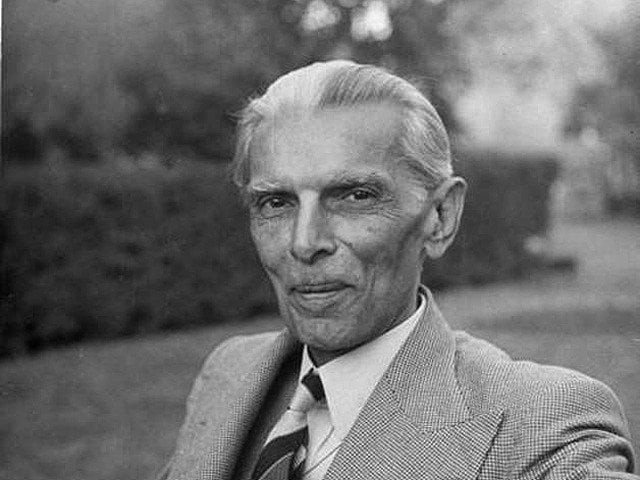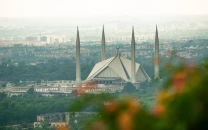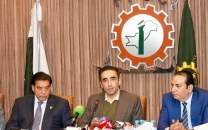Jinnah—beacon of hope for Pakistanis who wanted political change
Former civil service recounts how the Quaid inspired millions with his leadership qualities

PHOTO: FILE PHOTO
Jinnah still stirs the imagination of people in Pakistan who are looking for political change through constitutional and democratic means.
Roedad Khan, now in his nineties, is among the precious few still alive who met the Quaid on numerous occasions and saw how he influenced his followers and united them on a single platform for the creation of Pakistan.
“I saw Quaid-e-Azam Muhammad Ali Jinnah for the first time at Manto Park on March 23 , 1940 as a tall, handsome and intelligent man with great leadership qualities. He, with his sincere words, left listener spellbound. People were ready to believe his words and follow him even without knowing what he was really saying,” Khan says.
Quaid-i-Azam’s daughter Dina Wadia passes away at 98 in New York
“I used to reached Manto Park on my bicycle to listen to the visionary thoughts of my leader."
A Pakistani politician and former civil servant, he witnessed the creation of Pakistan first-hand and observed the Quaid’s struggle very closely.
Talking to APP in an interview, Roedad Khan said he was studying at Aligarh Muslim University from 1942 to 1944 when he met Quaid-e-Azam for the second time.
Aligarh Muslim University was close to Muhammad Ali Jinnah's heart and he used to visit the university students twice a year.
"When I was a sub-ordinate judge, I heard about Quaid-e-Azam’s arrival in Peshawar in 1946. I took a leave of absence from my office and rushed to the venue. I saw a number of Pakhtuns sitting there, listening to what Jinnah was saying," Khan recounts.
Quaid’s love for Islamia College remembered
“I was surprised at the level of trust and love the people had for Jinnah. They completely agreed with each and every word, although they were unable to comprehend them in their entirety due to the language barrier. Quaid’s Urdu was not good enough,” Khan recalled.
When I talked to a few of them, they said, “We don’t understand the language, but whatever the Quaid is saying is right.”
In 1948, Jinnah addressed the civil servants at Government House Peshawar.
“Ministers will come and go but you will remain there. You are the backbone of the administration. Let me tell you the politicians will force you to commit wrongdoings but you have to resist them,” Jinnah said at the occasion, according to Khan.
Quaid-e-Azam's bust unveiled at British Museum to mark 70th Independence of Pakistan
“I am aware that while resisting the pressure, you will suffer. You may be transferred to far-flung areas, but I want you to make sacrifices for Pakistan. Your biggest problem will be corruption not at the level of 'patwaris’ (local accountants) and 'thanedars’ (local police officers) but mega-corruption by those who at the height of power,” Quaid said.
“Your next biggest problem will be provincialism, but remember, you are Pakistani first and after that you are Punjabi, Sindhi, Balochi and Pakhtun. Your identity is Pakistan.”
“The Constitution of Pakistan will be made by the assembly and Pakistan will be a sovereign, independent, and progressive country. Pakistan will be a democratic state, and it will function in accordance with egalitarian principles of Islam," Roedad Khan quoted Jinnah as saying in a Radio Broadcast after the creation of the country.
"Former Prime Ministers of Pakistan Khawaja Nazimuddin, Liaquat Ali Khan, Feroz Khan Noon, and Huseyn Shaheed Suhrawardy were incorruptible. We need such people today at the administration level," Khan stressed.
Roedad Khan was also of the opinion that the youth and independent judiciary are two rays of hope for creating a stronger nation.
Khan was a leading figure in Pakistan from the start to the end of the Cold War. During his long career, he was one of the most senior civil servants of Pakistan and worked with five Presidents, including Ayub Khan, General Yahya Khan, Fazal Ilahi Chaudhry, General Zia-ul-Haq and Ghulam Ishaq Khan.



















COMMENTS
Comments are moderated and generally will be posted if they are on-topic and not abusive.
For more information, please see our Comments FAQ